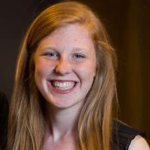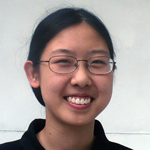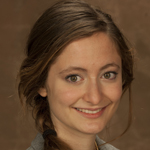Five juniors at Washington University in St. Louis have been awarded prestigious national scholarships.
Three students received the Barry M. Goldwater Scholarship and two students received the Morris K. Udall Scholarship for the 2012-13 academic year.
Winners of the Goldwater Scholarship are Rachel Greenstein, a biology major; Jennifer Head, who is majoring in chemical engineering; and Jenny Liu, who is majoring in electrical and biomedical engineering.
Madeleine Daepp, majoring in economics and mathematics, and Jeremy Pivor, majoring in environmental biology with a minor in public health, won the Udall Scholarship.
Daepp recently learned that she has also won a Truman scholarship.
“I believe the success of our students in winning these extremely competitive national awards is really grounded in the excellent faculty mentoring each of these students has received from very early on in their undergraduate careers,” says Joy Z. Kiefer, PhD, assistant dean in the College of Arts & Sciences and director of the Office of Undergraduate Research.
“This in-depth faculty mentoring is a hallmark of the undergraduate experience here at Washington University, and I am very happy to have us represented so well on the national stage,” says Kiefer, the campus fellowship adviser for current students and recent alumni interested in competitive fellowship and scholarship programs.
The Goldwater Scholarship is considered one of the most prestigious awards for undergraduates planning careers in the sciences, engineering or math. It covers as much as $7,500 annually toward tuition, fees and books for either one or two years.
The U.S. Congress established the Barry M. Goldwater Scholarship and Excellence in Education Foundation in 1986 to honor Sen. Barry M. Goldwater, who served in the U.S. Senate for 30 years.
The Goldwater Foundation, a federally endowed agency, awarded 282 scholarships for the 2012-13 academic year, selecting recipients on the basis of academic merit from a pool of 1,123 undergraduate sophomores and juniors nominated by the faculties of colleges and universities nationwide.
Udall scholarships are granted to those who demonstrate a commitment to fields related to the environment or to Native American or native Alaskan students in fields related to health care and tribal public policy.
It covers tuition, fees, books and room and board to a maximum of $5,000 per year.
The U.S. Congress established the Morris K. Udall Foundation in 1992 to honor Morris K. Udall, who served in the House of Representatives for 30 years, and renamed it in 2009 to include Stewart L. Udall in recognition of his public service.
The Udall Scholarship program is administered by the Morris K. Udall and Stuewart L. Udall Scholarship and Excellence in National Environmental Policy Foundation.
A total of 80 Udall Scholars were selected from 585 candidates nominated by 274 colleges and universities this year.
Goldwater Scholars
Greenstein is majoring in biology with a concentration in the areas of molecular biology and biochemistry in Arts & Sciences.
She has worked in the laboratory of Douglas Chalker, PhD, associate professor of biology, since 2010. Under his mentorship, she is studying the ciliate Tetrahymena thermophila, an organism that eliminates 30 percent of the DNA from its functional genome during development. The goal of Chalker’s lab is to understand how this massive genome reorganization is regulated and how it is related to DNA packaging in organisms with membrane-bound nuclei.
Greenstein’s contribution was to tag one of the genes suspected of playing a role in the reorganization with a fluorescent protein. She says she felt pure elation when she flipped off the light on her microscope, opened the filter and saw brilliant red dots in the nuclei of the cells, indicating the tagged protein was indeed localized to sites of DNA rearrangement.
She won a research fellowship from the Howard Hughes Medical Institute to continue her research during the summer of 2011. Working fulltime, she added other tags to serve as handles for biochemical analyses and worked on a “knockout” strain that would be missing the gene she had earlier tagged. (Knocking out a gene can show whether it is essential for cell survival or clarify its role in cellular processes.)
Greenstein, who is motivated in part by the early death of her mother from breast cancer, plans to earn a doctorate in molecular cell biology with the goal of teaching at the university level, a goal only reinforced by her experiences as a teaching assistant and peer tutor for the introductory biology courses at the university.
Head, a Danforth, Ervin and McKelvey Research scholar, is majoring in chemical engineering with minors in environmental engineering and Spanish in Arts & Sciences. McKelvey Scholars, selected from incoming engineering students, each receive an award to conduct research with a WUSTL faculty member in engineering, medicine or the sciences.

Head worked with Yinjie Tang, PhD, the Francis Ahmann Career Development Assistant Professor in Energy, Environmental and Chemical Engineering. In his lab, she measured the toxicity of nanoparticles by their effects on seed germination and root elongation.
In summer 2010, as part of the International Experience Program offered by the Department of Energy, Environmental, and Chemical Engineering, Head studied environmental engineering at the Institute of Technology in Mumbai, India. During the program, she completed independent research projects on generating water from the atmosphere and microbial fuel cells.
The past two summers, Head has worked at the U.S. Environmental Protection Agency in Cincinnati. Under the guidance of Todd Luxton, PhD, a postdoctoral fellow at the EPA lab, she studied the use of iron nanoparticles from welding fumes to absorb and reduce hexavalent chromium in groundwater.
She also analyzed soil from a superfund site in North Carolina for arsenic and lead. At the EPA’s Experimental Stream Facility, she assisted in experiments to determine the effect of mountaintop mining on water systems.
This summer, Head plans to work with Daren Chen, PhD, professor of energy, environmental and chemical engineering, to generate nano-sized controlled-release cancer drugs by the electrospray technique Chen has perfected.
Head is the fundraising officer for the WUSTL chapter of Engineers Without Borders and will be the project leader for the chapter’s Ethiopia project in the upcoming school year. The group plans to rebuild a water tower for the Mekelle School for the Blind in Ethiopia.
Liu, an Alexander S. Langsdorf Fellow and a McKelvey Research Scholar, is majoring in electrical engineering and biomedical engineering.

The McKelvey scholarship, she says, allows her to work in a lab while attending school.
Recently, she studied the thermodynamics of a membrane protein in the bacterium E. coli under the guidance of Katie Henzler-Wildman, PhD, assistant professor of biochemistry and biophysics in the School of Medicine. The protein is a multidrug transporter that can recognize and expel multiple compounds, many of which are antibiotics, such as tetracycline.
Liu says she became interested in drug resistance during a summer internship in a pathology department while she was in high school. “Reading through patient charts describing infection from bacteria strains resistant to pretty much everything available, resulting in amputation or death, was heartbreaking,” she says.
Last May, Liu joined a completely student-run lab started by Sam Fok, who has since graduated, and advised by Eric C. Leuthardt, MD, assistant professor of neurosurgery, of biomedical engineering and of neurobiology in the School of Medicine.
The primary goal of the group is to work on the Ipsihand, a stroke rehabilitation therapy device that uses signals from motor neurons that survived the stroke to move the patient’s hand.
Outside the classroom, Liu builds combat robots with the student chapter of the American Society of Mechanical Engineers, for which she is co-secretary. She is also an officer for the International Pre-health Society, a WUSTL group that supports international students in their pursuit of health careers.
Udall Scholars
Daepp, who is majoring in economics and in mathematics, both in Arts & Sciences, plans to earn a law degree before embarking on a joint master’s degree program in agricultural law and economics, with the expectation of working in agricultural policy. Daepp was also named a Truman Scholar.

“I would really like to mediate between farmers, researchers and policymakers to encourage the innovation and implementation of more sustainable food production practices,” she says.
As co-president of Burning Kumquat, a student-run garden, Daepp has led many efforts on campus and in the St. Louis community to raise awareness about the economic and environmental issues surrounding food production. She worked with members of the university administration and food service to supply produce from the student garden to the dining facilities and to facilitate a university farmer’s market for the campus community during the growing season.
She also secured the competitive Gephardt Institute for Public Service Civic Engagement grant to fund an environmental education and gardening project for inner-city youth in St. Louis.
She attributes her interest in sustainable food to her father. Both of her parents are mathematicians at Bucknell University in Lewisburg, Pa., but her father, who is from Bern, Switzerland, was raised in a culture where produce was eaten fresh and only in season.
Pivor plans to pursue advanced degrees in ocean policy and international environmental law with the goal of becoming an advocate for the sustainable conservation and management of the world’s oceans.

A Florence Moog Scholar, Pivor is also a member of the WUSTL’s Pathfinder Program in Environmental Sustainability, a four-year educational program that allows students to examine the issues surrounding environmental sustainability through case studies and field trips.
Pivor has also studied the ecosystems of caves in Missouri, oyster reefs in North Carolina, and coral reefs in Madagascar.
Pivor co-founded Washington University Students for International Collaboration on the Environment (WUSICE). Through WUSICE, he organized WUSTL’s first U.S.-China Undergraduate Conference on Climate Change and Sustainability, inviting students from Fudan University in Shanghai, China, to St. Louis to discuss climate change.
Last fall, Pivor organized the university’s first delegation to the United Nations COP17 climate-change conference in Durban, South Africa, where he also served as the Sierra Club’s student coalition’s international youth delegate. (COP17 stands for the 17th Conference of the Parties to the United Nations Framework Convention on Climate Change.)